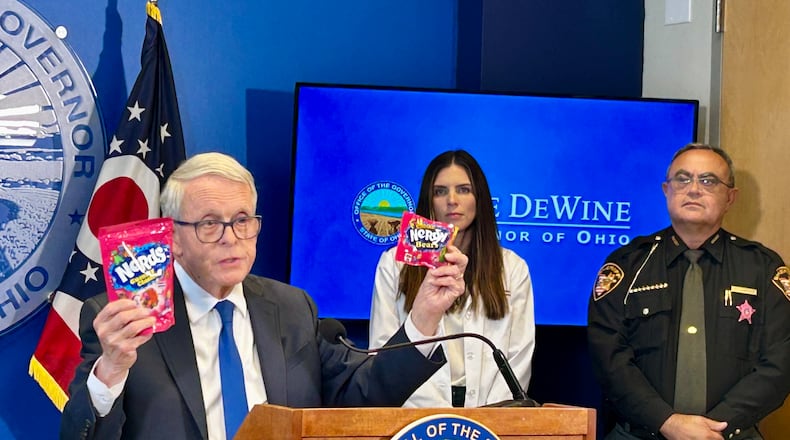“Ohio law classifies all products with no more than 0.3% THC-9 as hemp and allows any person to manufacture, distribute, or sell these hemp products,” the organization said in a press release. “These products were federally legalized by the 2018 farm bill and are responsible for an estimated close to $3 billion in economic impact throughout the state.”
OHHAA estimates some 20,000 Ohioans will be unemployed as a result of DeWine’s ban, if it goes into effect.
“There will be billions of dollars in negative economic impact, and hundreds of millions in wages lost. Not to mention the commercial real estate leases that they will have to default on, unpaid vendor debts, unpaid business taxes, and revenue losses for downstream supply chain partners that serve the industry,” the release said.
DeWine’s executive order banning intoxicating hemp directed the Ohio Department of Agriculture to change the state’s administrative legal definition of hemp to exclude intoxicating hemp products.
On Wednesday, the governor expressed gripes against intoxicating hemp products, which have no legal mandates for safety testing and can be sold to any Ohioan at any age at the discretion of the retailer. DeWine targeted products that could appeal to children by spoofing well-known products like Gushers, Sour Patch Kids, and Nerds Gummy Clusters.
He argued it wasn’t the intent of federal or state legislators to create an unregulated market of intoxicating hemp products when the government moved to legalize the hemp industry.
“It was not the intention of the legislature to legalize an unregulated product that could harm our children,” DeWine said. “That was never, never what the legislature intended.”
Hemp and marijuana are derived from the same plant — cannabis — though hemp was defined in a 2019 Ohio law as any part of the plant with a delta-9 (also known as THC, the primary psychoactive compound in marijuana) concentration of 0.3% or less.
Intoxicating hemp products don’t contain high levels of delta-9, but they do exploit compounds like delta-8 THC or THC-A.
The Ohio State University Moritz College of Law describes an intoxicating hemp product, in broad terms, as “a hemp-derived product that contains cannabinoids in concentrations high enough to produce psychoactive effects when consumed. These cannabinoids occur naturally in hemp plants, although their extraction requires extensive manipulation via chemical processes.”
In January 2024, when DeWine made a public appeal for the Ohio General Assembly to either fully ban intoxicating hemp products or at least place regulations on their production and sales, he told reporters he didn’t believe his office had the power to put those regulations in place through a unilateral executive order.
But, despite a considerable amount of time spent on the topic, Ohio legislators haven’t managed to agree on what regulation should look like. On Wednesday, DeWine told the press that he was emboldened to sign the executive orders after asking the state’s lawyers to take another look at his options.
“We believe we have this authority to do this, and I’m not going to sit back and not do it,” said DeWine. “I went back to my lawyers and I said this problem continues to get worse. It is absolutely absurd that a 14-year-old or 13-year-old can walk into the store and buy this stuff. It’s never what anybody intended when the hemp law was passed.”
The OHHAA called for DeWine and the Ohio legislature to approve a measured system of regulation on intoxicating hemp products, one that includes age limits on purchasing, child-proof packaging and product safety testing.
“While dozens of states including Indiana, Kentucky, Tennessee, Pennsylvania and others have successfully chosen to regulate this much needed industry, this total ban will cause systematic chaos overnight,” the organization said.
For more stories like this, sign up for our Ohio Politics newsletter. It’s free, curated, and delivered straight to your inbox every Thursday evening.
Avery Kreemer can be reached at 614-981-1422, on X, via email, or you can drop him a comment/tip with the survey below.
About the Author

